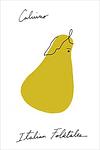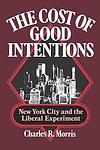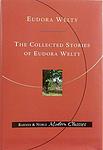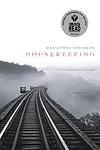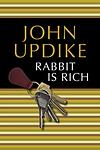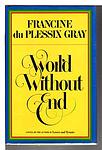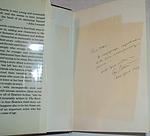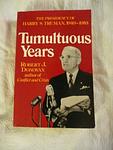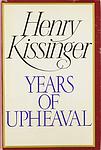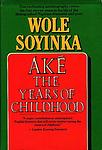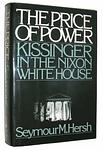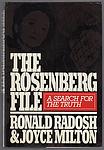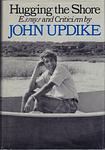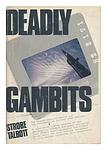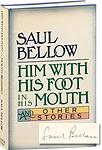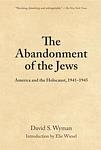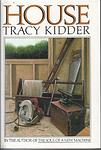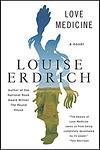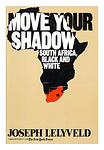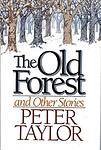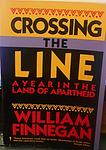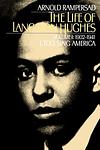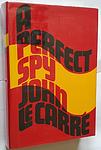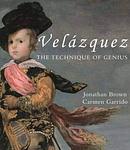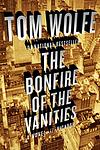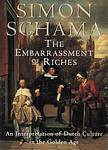NY Times Editors Choice 1980-1989
This is one of the 305 lists we use to generate our main The Greatest Books list.
-
Falling in Place by Ann Beattie
"Falling in Place" is a novel set in the 1970s that explores the lives of a group of suburban Connecticut residents during one hot summer. The narrative focuses on the characters' internal struggles and interpersonal relationships, portraying a family in crisis, a teenage girl's suicide attempt, and a young boy's fascination with outer space. The story provides a stark examination of the disillusionment and existential dread experienced by the characters, reflecting the broader societal malaise of the era.
The 3395th Greatest Book of All Time -
Christianity, Social Tolerance, And Homosexuality by John Boswell
The book explores the complex relationship between Christianity and homosexuality across different historical periods, particularly focusing on the first 1,200 years of Christian history. It challenges the commonly held belief that Christianity has always condemned homosexuality, presenting evidence of greater tolerance and acceptance in early Christian teachings and practices than in later centuries. The work meticulously examines theological, legal, and social contexts, revealing a nuanced understanding of the historical interactions between religious beliefs and sexual orientations.
The 6915th Greatest Book of All Time -
Italian Folktales by Italo Calvino
"Italian Folktales" is a collection of enchanting and timeless stories from Italy's rich folkloric heritage. Compiled and retold by a prominent 20th-century writer, the book brings together a diverse array of tales filled with whimsy, wisdom, and magical elements. Each story transports readers into a world of brave heroes, cunning creatures, and fantastical events, reflecting the cultural traditions and social mores of different Italian regions. This anthology not only entertains but also preserves the folkloric legacy of Italy, showcasing the art of storytelling and the universal themes that connect humanity across time and space.
The 6630th Greatest Book of All Time -
Loon Lake by E. L. Doctorow
The novel follows the journey of a young and impoverished man during the Great Depression as he stumbles upon the secluded, opulent estate of Loon Lake. Seeking escape from his destitute circumstances, he becomes entangled with the lives of the wealthy industrialist who owns the estate, his mysterious mistress, and other eccentric characters he meets along the way. Set against the backdrop of economic turmoil, the story explores themes of desire, power, and the American Dream, revealing the stark contrasts between different social classes during one of America's most challenging times.
The 6915th Greatest Book of All Time -
Man in the Holocene by Max Frisch
The book is a narrative about an elderly man who, isolated in his home during a rainstorm in the Swiss Alps, reflects on his life, mortality, and the human condition. The protagonist spends his time reading encyclopedic entries and clipping them to his wall, creating a mosaic of human knowledge and history. The narrative is interspersed with these entries, presenting a blend of fiction and non-fiction, and exploring themes of memory, time, and the fleeting nature of human existence.
The 2318th Greatest Book of All Time -
Walt Whitman by Justin Kaplan
This biography provides an in-depth look at the life of one of America's most influential poets, exploring his personal life, career, and the societal impacts of his work. The book delves into his upbringing, his controversial views, and the evolution of his poetry, which celebrated democracy, nature, love, and friendship. It also examines the critical reception of his work, his struggles with financial instability and health issues, and his lasting impact on American literature and culture. Through detailed research and comprehensive analysis, the biography paints a vivid portrait of a complex man who was both a product of his time and ahead of it.
The 6915th Greatest Book of All Time -
China Men by Maxine Hong Kingston
"China Men" is a collection of stories that delve into the lives of Chinese immigrants in America, blending mythology, family history, and cultural heritage. The book explores the struggles, contributions, and identities of these men who left their homeland in search of better opportunities, facing both discrimination and hardship in America. Through a series of poignant narratives, the author captures the complex interplay between personal and collective histories, revealing the deep roots and enduring spirit of the Chinese American community.
The 6915th Greatest Book of All Time -
The Cost Of Good Intentions by Charles R. Morris
"The Cost of Good Intentions" examines the fiscal crisis that New York City faced in the 1970s, tracing its origins back to the expansive welfare policies initiated in the 1960s. The book argues that these well-meaning social programs, designed to alleviate poverty and improve urban life, inadvertently set the stage for economic disaster by creating unsustainable financial obligations. Through detailed analysis, the narrative explores how the city's commitment to generous social services, coupled with inadequate fiscal management and broader economic challenges, led to a situation where New York nearly declared bankruptcy, highlighting the complex interplay between political ambitions and economic realities.
The 6915th Greatest Book of All Time -
Conrad In The Nineteenth Century by Ian Watt
"Conrad in the Nineteenth Century" offers a detailed critical analysis of the early works of a renowned novelist, exploring his development as a writer within the context of the nineteenth century. The book examines the significant themes, narrative techniques, and ideological concerns of his major works from this period, situating them within the broader literary and historical movements of the time. Through a close reading of the texts, the study delves into the complexities of imperialism, psychological depth, and moral ambiguity, highlighting the author's innovative contributions to literature and his profound influence on the modernist narrative.
The 6878th Greatest Book of All Time -
The Collected Stories of Eudora Welty by Eudora Welty
This collection of short stories provides an insightful look into the human condition through the lens of Southern American life. The narratives, rich in detail and character development, explore a wide range of themes such as love, loss, race, poverty, and the complexities of human relationships. The stories are deeply rooted in the setting of the Southern United States, bringing to life the unique culture, customs, and dialect of the region. The author's masterful storytelling and evocative prose make each story a vivid and memorable exploration of human nature.
The 714th Greatest Book of All Time -
The Chaneysville Incident by David Bradley
This novel centers around John Washington, an African-American historian, who returns to his hometown in Pennsylvania to care for his dying stepfather. During his stay, he becomes obsessed with uncovering the truth about the mysterious death of 13 runaway slaves, including his own ancestor, in Chaneysville. His relentless search for answers becomes a journey of self-discovery as he grapples with the history of racism, his personal relationships, and his own identity.
The 1592nd Greatest Book of All Time -
Bad Blood by James Jones
"Bad Blood" is a compelling narrative that delves into the complexities of human relationships and moral dilemmas within a military setting. The story unfolds in a U.S. Army base where tensions escalate among soldiers, leading to a violent and tragic confrontation. The novel explores themes of power, corruption, and the impact of war on personal integrity and ethical judgments. Through its vivid character portrayals and intense plot, the book offers a gritty and realistic look at the challenges faced by individuals caught in the pressures of military life and the consequences of their choices under duress.
The 6987th Greatest Book of All Time -
Haydn by H.C. Robbins Landon
This book provides an in-depth exploration of the life and works of Joseph Haydn, a pivotal figure in the Classical era of music. It delves into his early years, his development as a composer, and his significant contributions to the symphony and string quartet. The biography also examines Haydn's relationships with other prominent composers, his patrons, and the broader socio-political context of his time. Rich with detailed analyses of Haydn's compositions and insights into his influence on Western music, the book offers a comprehensive look at his enduring legacy.
The 6695th Greatest Book of All Time -
Philosophical Explanations by Robert Nozick
"Philosophical Explanations" is a comprehensive work that delves into several core areas of philosophy, including metaphysics, epistemology, and ethics. The book challenges traditional philosophical methodologies and advocates for a new approach that emphasizes explanation over argument, theory, and proof. It explores profound questions about knowledge, free will, the nature of reality, and the meaning of life, offering innovative and thought-provoking perspectives. The author's style is notable for its clarity, depth, and a non-coercive mode of philosophy that invites readers to explore ideas rather than accepting them as absolute truths.
The 6987th Greatest Book of All Time -
Old Glory by Jonathan Raban
In this travelogue, the author embarks on an ambitious solo journey down the Mississippi River, navigating the complex currents of both the waterway and the American heartland. Steering a 16-foot aluminum motorboat, he delves into the diverse cultures, histories, and landscapes of the river, encountering a vivid cast of characters along the way. The narrative captures the essence of the United States during a particular period, exploring the intersection of the past and present, the urban and rural, and the mythic versus the everyday. Through his eyes, readers experience the mighty river's role as both a conduit for adventure and a mirror reflecting the nation's soul.
The 1512th Greatest Book of All Time -
Housekeeping by Marilynne Robinson
The novel explores the life of two sisters, Ruth and Lucille, who are raised by a series of relatives in a small, secluded town in Idaho after their mother's suicide. The girls' lives are profoundly affected by the eccentric and transient lifestyle of their aunt Sylvie, who becomes their guardian. The narrative delves deeply into themes of family, identity, womanhood, and the impermanence of life, ultimately leading to a divide between the sisters as they choose different paths in life.
The 215th Greatest Book of All Time -
Midnight's Children by Salman Rushdie
The novel tells the story of Saleem Sinai, who was born at the exact moment when India gained its independence. As a result, he shares a mystical connection with other children born at the same time, all of whom possess unique, magical abilities. As Saleem grows up, his life mirrors the political and cultural changes happening in his country, from the partition of India and Pakistan, to the Bangladesh War of Independence. The story is a blend of historical fiction and magical realism, exploring themes of identity, fate, and the power of storytelling.
The 38th Greatest Book of All Time -
The Gate of Heavenly Peace by Jonathan Spence
"The Gate of Heavenly Peace" is a comprehensive historical analysis of China from the 1890s through the 1980s, focusing on the intellectual and political movements that shaped the country. The book explores the complex interplay between tradition and modernity, and the often tumultuous relationship between the Chinese people and their leaders. It delves into the lives and thoughts of key figures in Chinese history, providing a nuanced understanding of the forces that have shaped China's trajectory.
The 2433rd Greatest Book of All Time -
A Flag For Sunrise by Robert Stone
Set in a fictional Central American country on the brink of revolution, the narrative weaves together the lives of disparate characters: an anthropologist seeking meaning, a disillusioned missionary, a coast guard officer, and a young American woman entangled with a mysterious, possibly treasonous, poet. Their paths intersect against a backdrop of political turmoil, personal betrayal, and moral ambiguity. As the tension escalates, each character is forced to confront the chaos within the country and within themselves, leading to a climax that questions the price of integrity and the cost of survival in a world fraught with corruption and violence.
The 1639th Greatest Book of All Time -
The White Hotel by D. M. Thomas
The book follows the life of Lisa Erdman, a half-Jewish opera singer, through her erotic fantasies, her analysis with Sigmund Freud, her subsequent life in pre-war Vienna, and her eventual death in a Nazi concentration camp. The narrative is presented in a variety of styles, including erotic poetry, Freud's case study, third-person narrative, and a surrealistic opera libretto. The novel explores themes of sexuality, psychoanalysis, and the human capacity for evil and destruction.
The 3461st Greatest Book of All Time -
Prisoner Without A Name, Cell Without A Number by Jacobo Timerman
The book is a harrowing memoir of a journalist who was detained and tortured by the Argentine military government during the late 1970s. It vividly recounts his experiences of imprisonment, the brutal interrogation techniques he endured, and his observations on the political and social turmoil of Argentina under a repressive regime. The narrative not only exposes the personal anguish and struggle of the author but also serves as a critical examination of the impact of totalitarianism on society and the perilous state of human rights under such governance.
The 5322nd Greatest Book of All Time -
Rabbit Is Rich by John Updike
The book follows the life of a former high school basketball star, who is now in his mid-forties and has inherited a Toyota dealership from his father-in-law. He is living a comfortable life with his wife and son in Brewer, Pennsylvania during the late 1970s. The story unfolds as he navigates through his midlife crisis, dealing with his rebellious son, his longing for his old mistress, and his own insecurities and dissatisfaction. The narrative provides a deep dive into the protagonist's thoughts and feelings, offering a detailed examination of middle-class American life during this era.
The 377th Greatest Book of All Time -
Zuckerman Bound by Philip Roth
The book is a compilation of works that follow the life of a fictional novelist, Nathan Zuckerman, as he navigates the complexities of success, identity, and creativity in the literary world. Set against the backdrop of the 1960s and 1970s in the United States, the protagonist grapples with the consequences of his own controversial writing, which draws heavily from his personal experiences and Jewish heritage. As he deals with the fallout from family, critics, and admirers, the narrative delves into themes of artistic integrity, personal freedom, and the burdens of fame, offering a satirical and introspective look at the inner workings of the literary establishment and the challenges of being a public intellectual.
The 5072nd Greatest Book of All Time -
World Without End by Francine du Plessix Gray
"World Without End" is a historical novel that delves into the lives of three remarkable French figures: the philosopher and mathematician Blaise Pascal, his devoutly religious sister Jacqueline, and their father, Étienne. The narrative explores the complex dynamics within the Pascal family, set against the backdrop of 17th-century France—a time rife with political intrigue, religious conflict, and intellectual fervor. Through meticulous research and rich storytelling, the book paints a vivid portrait of the Pascal family's struggles and triumphs, highlighting their profound impact on both religious and scientific thought.
The 6987th Greatest Book of All Time -
The Burning House by Ann Beattie
"The Burning House" is a collection of short stories that explore the complexities of modern relationships and the subtle dynamics of life in contemporary America. Each story delves into the lives of ordinary characters who face everyday challenges, revealing their inner struggles, unfulfilled dreams, and the often unnoticed tensions that shape their interactions with others. Through precise and evocative prose, the book captures the nuanced realities of emotional distance and the quiet moments of introspection that define the human experience.
The 7020th Greatest Book of All Time -
Waiting for the Barbarians by J M Coetzee
The novel is set in a small frontier town of an unnamed empire, where the magistrate lives a life of civil service and relative peace. His world is disrupted when the Empire declares a state of emergency due to rumors of barbarian uprising. The magistrate becomes a critic of the Empire's brutal and inhumane methods of dealing with the perceived threat, which leads to his arrest and torture. As he tries to understand his role in the vast political machinery, he also grapples with questions of power, justice, and humanity.
The 430th Greatest Book of All Time -
Tumultuous Years by Robert J. Donovan
"Tumultuous Years" provides an in-depth exploration of the presidency of Harry S. Truman, focusing on the critical post-World War II period through the onset of the Cold War. The book delves into Truman's controversial decisions, such as the use of atomic bombs on Japan and his bold initiatives like the Marshall Plan and the establishment of NATO. It also examines his domestic policies, leadership style, and the significant challenges he faced, including labor strikes, economic adjustments, and growing tensions with the Soviet Union. Through detailed narrative and analysis, the book paints a vivid picture of a presidency marked by momentous events that shaped the modern world.
The 7082nd Greatest Book of All Time -
Schindler's List by Thomas Keneally
The book tells the true story of a German businessman who saves more than a thousand Polish Jews during the Holocaust by employing them in his factories. The protagonist's transformation from a greedy high living war profiteer to a savior of lives forms the crux of the narrative. It offers a chilling yet inspiring account of the horrors of the Holocaust, human resilience, and the power of one individual to make a significant difference.
The 412th Greatest Book of All Time -
Years Of Upheaval by Henry A. Kissinger
"Years of Upheaval" is a detailed and introspective account of the author's tenure as the U.S. Secretary of State during the tumultuous years of the early 1970s. The book delves into the complexities of international diplomacy and political maneuvering during a period marked by the winding down of the Vietnam War, the historic 1973 Yom Kippur War in the Middle East, and the consequential peace negotiations that followed. It also explores the intricate dynamics of U.S.-Soviet relations and the strategic arms limitation talks, providing a deep insight into the challenges and intricacies of Cold War diplomacy, all set against the backdrop of domestic political upheaval and the Watergate scandal.
The 7020th Greatest Book of All Time -
The Fate Of The Earth by Jonathan Schell
"The Fate of the Earth" is a profound and impactful exploration of the consequences of nuclear war on humanity and the environment. The book delves into the potential aftermath of such a catastrophe, discussing not only the immediate effects on human life and health but also the long-term ecological and genetic damage. It serves as a stark warning about the existential risks posed by nuclear weapons, arguing for the necessity of disarmament and the reevaluation of national and global security policies to prevent annihilation. The author combines scientific analysis, moral inquiry, and a passionate call for action to engage readers in a critical discussion about the future of the planet and the human race.
The 7020th Greatest Book of All Time -
Bronx Primitive by Kate Simon
"Bronx Primitive" is a vivid memoir that transports readers to the Bronx during the early 20th century, capturing the essence of growing up in a Polish immigrant community. Through the eyes of a young girl, the narrative explores the complexities of assimilation and identity amidst the bustling backdrop of New York City. The author's reflections are both poignant and humorous, offering a richly detailed portrayal of family life, cultural clashes, and the personal quest for self-discovery within the confines of a tightly knit neighborhood.
The 7020th Greatest Book of All Time -
Ake: The Years Of Childhood by Wole Soyinka
"Ake: The Years of Childhood" is a memoir that chronicles the early years of a Nigerian boy growing up in the town of Ake. Set in the 1940s, the book vividly captures the author's experiences, from his close-knit family life to his encounters with colonialism and the struggle for independence. Through his insightful and lyrical prose, the author takes readers on a nostalgic journey filled with rich cultural traditions, humorous anecdotes, and poignant reflections on the complexities of childhood.
The 2188th Greatest Book of All Time -
Isak Dinesen by Judith Thurman
The biography explores the life of Isak Dinesen, a pseudonym for the Danish author Karen Blixen, who is best known for her evocative and hauntingly beautiful tales set against the backdrop of her life in Kenya. The book delves into her aristocratic upbringing in Denmark, her marriage and move to Africa where she ran a coffee plantation, and her complex personal relationships. It also examines her return to Denmark and her subsequent rise to literary fame. The biography provides a detailed and nuanced portrait of a complex and enigmatic figure, whose works and persona left a lasting impact on the literary world.
The 7020th Greatest Book of All Time -
Dinner at the Homesick Restaurant by Anne Tyler
"Dinner at the Homesick Restaurant" is a novel about the life of the Tull family, which is marked by abandonment and discord, but also love and resilience. The story is told from the perspective of each family member, providing a unique viewpoint on the family's dynamics and history. The matriarch, Pearl, struggles to raise her three children, Cody, Ezra, and Jenny, after their father abandons them. Each child deals with the abandonment and their dysfunctional family in different ways, shaping their adult lives. The novel explores themes of family, love, abandonment, and the idea of home.
The 761st Greatest Book of All Time -
Bech Is Back by John Updike
In "Bech Is Back," the protagonist, a Jewish-American writer named Henry Bech, experiences a revival of his career after a period of creative stagnancy. Throughout the novel, Bech travels the world, from Europe to communist countries, grappling with the challenges of literary fame, cultural differences, and personal inadequacies. The narrative combines humor and satire to explore the complexities of literary life and the peculiarities of Bech's character, offering a sharp critique of both the literary establishment and international cultural politics.
The 7020th Greatest Book of All Time -
Aunt Julia and the Scriptwriter by Mario Vargas Llosa
The novel is a semi-autobiographical tale of a young man in Peru who falls in love with his divorced aunt, Julia, while working at a radio station. Their scandalous romance unfolds amidst the backdrop of a chaotic radio station run by a brilliant but unstable Bolivian scriptwriter who churns out daily soap operas. The narrative alternates between the protagonist's real life and the melodramatic world created by the scriptwriter, blending reality and fiction in a humorous and poignant exploration of love and creativity.
The 1522nd Greatest Book of All Time -
Cathedral by Raymond Carver
"Cathedral" is a collection of twelve short stories that explore the complexities of human relationships and the struggles of everyday life. The characters, often middle-class Americans, grapple with loss, isolation, and the inability to communicate effectively. The title story involves a man who gains insight into his own life when he helps a blind man envision a cathedral. Through these tales, the author highlights the profound moments in ordinary lives, showing the beauty and tragedy in the mundane.
The 882nd Greatest Book of All Time -
During The Reign Of The Queen Of Persia by Joan Chase
"During the Reign of the Queen of Persia" is a novel that explores the lives and experiences of a group of young cousins growing up in rural Ohio during the 1950s. Narrated from the collective perspective of the girls, the story delves into their complex family dynamics, particularly focusing on the influence of their grandmother, a formidable and charismatic woman. The narrative captures the nuances of childhood and adolescence, weaving themes of identity, femininity, and the transition from innocence to awareness against the backdrop of a changing America. The novel poignantly portrays the bonds of family and the pains of growing up, offering a rich and textured glimpse into the intricacies of rural life and the enduring impact of matriarchal figures.
The 7082nd Greatest Book of All Time -
The Name of the Rose by Umberto Eco
Set in a wealthy Italian monastery in the 14th century, the novel follows a Franciscan friar and his young apprentice as they investigate a series of mysterious deaths within the monastery. As they navigate the labyrinthine library and decipher cryptic manuscripts, they uncover a complex plot involving forbidden books, secret societies, and the Inquisition. The novel is a blend of historical fiction, mystery, and philosophical exploration, delving into themes of truth, knowledge, and the power of the written word.
The 108th Greatest Book of All Time -
Attlee by Kenneth Harris
This biography provides an in-depth look at the life and political career of Clement Attlee, the British Prime Minister who led the Labour Party to a landmark victory in 1945. The book delves into Attlee's early life, his rise through the ranks of the Labour Party, and his pivotal role in post-war reconstruction. It highlights his quiet yet determined leadership style, his pivotal role in the creation of the welfare state, and his contributions to the decolonization process. The biography also explores his relationships with contemporaries, including Winston Churchill, and evaluates his lasting impact on British and international politics.
The 7020th Greatest Book of All Time -
The Price of Power by Seymour M. Hersh
"The Price of Power" offers a critical examination of the presidency of Richard Nixon with a particular focus on the Vietnam War. The book delves into the secretive and often manipulative tactics employed by Nixon and his administration, including the undermining of peace talks to secure his own political victory. It presents a detailed and disturbing account of political maneuvering, deception and abuse of power at the highest level of American politics.
The 2699th Greatest Book of All Time -
Modern Times by Paul Johnson
"Modern Times" is an in-depth historical analysis of the 20th century, covering major events, movements, and figures that have shaped the modern world. The author critically examines the impacts of World War I and II, the Cold War, the rise of totalitarian regimes, and the influence of religion and ideology on politics and society. The book also explores significant scientific and technological advancements, and their effects on human perception and behavior. It provides a comprehensive understanding of the complexities and contradictions of the 20th century, and how they continue to influence the 21st century.
The 1655th Greatest Book of All Time -
Ironweed by William Kennedy
Set during the Great Depression, the novel follows Francis Phelan, a former professional baseball player, who has become a drifter following a series of unfortunate events. Haunted by his past, including the accidental death of his infant son, Phelan returns to his hometown of Albany, New York, where he confronts his past and tries to make amends. The book explores themes of guilt, suffering, survival, and redemption.
The 1407th Greatest Book of All Time -
Chronicle of a Death Foretold by Gabriel García Márquez
The novel unfolds as a murder mystery, revealing the planned revenge killing of a young man named Santiago Nasar by the Vicario brothers. They believe Santiago has dishonored their sister, Angela, by taking her virginity before her marriage to another man. Despite the impending murder being common knowledge within the small Colombian town, a series of coincidences and misunderstandings prevent anyone from intervening, leading to Santiago's tragic and foretold demise. The narrative explores themes of honor, fate, and the collective responsibility of a community.
The 989th Greatest Book of All Time -
The Moons Of Jupiter by Alice Munro
"The Moons of Jupiter" is a collection of short stories that delve into the complexities of human relationships, particularly those between family members and close friends. The narratives explore themes of mortality, life choices, and personal growth through the lens of the protagonist, Janet, and other vividly drawn characters. Set against the backdrop of Canadian landscapes, the stories blend everyday occurrences with profound emotional insights, revealing the subtle yet powerful forces that shape our lives. Through her nuanced storytelling, the author captures the intricacies of love, loss, and the passage of time, offering a reflective look at the ties that bind us.
The 7020th Greatest Book of All Time -
The Rosenberg File by Ronald Radosh, Joyce Milton
"The Rosenberg File" is a comprehensive examination of the controversial espionage case involving Julius and Ethel Rosenberg, who were accused of passing atomic secrets to the Soviet Union during the Cold War. The book delves into the trial, the political climate of the time, and the extensive debates surrounding the guilt and sentencing of the Rosenbergs. Utilizing a wealth of previously unavailable FBI files and Soviet archives, the authors critically analyze the evidence and testimonies presented in the case, offering a detailed and nuanced perspective on the motivations, implications, and fairness of the proceedings that led to the execution of the Rosenbergs.
The 7082nd Greatest Book of All Time -
The Anatomy Lesson by Philip Roth
The book centers on a once-successful writer who, plagued by chronic pain and unable to continue his literary work, experiences a profound identity crisis. As he grapples with his physical agony and the disintegration of his personal life, he embarks on a desperate quest for a cure and a new sense of purpose. This leads him to consider a drastic career change, which takes him on a darkly comic journey through the medical community and his own tortured psyche. The narrative delves into themes of mortality, the meaning of suffering, and the search for redemption in the face of overwhelming despair.
The 2320th Greatest Book of All Time -
The Social Transformation of American Medicine by Paul Starr
"The Social Transformation of American Medicine" is a comprehensive history of the evolution of healthcare in the United States, examining the rise of the medical profession, the impact of technological advancements, and the development of medical institutions. It explores the dynamics between medical professionals and patients, the influence of social, economic, and political factors on healthcare, and the ongoing struggle for a national health policy. The book also looks at the power dynamics within the medical field and the role of medical authority in society.
The 6224th Greatest Book of All Time -
Hugging The Shore by John Updike
"Hugging the Shore" is a collection of essays and criticism that offers an insightful exploration into various aspects of literature, art, and culture. The book compiles reviews, prefaces, and occasional pieces that delve into the works of numerous authors, poets, and artists, reflecting the author's broad literary tastes and deep understanding of the subjects. The essays are marked by their eloquence, sharp analysis, and the author's personal reflections, providing readers with a rich tapestry of intellectual engagement with the arts. Through this compilation, the author not only critiques but also celebrates the diversity and complexity of literary and artistic expression.
The 7082nd Greatest Book of All Time -
The Bourgeois Experience by Peter Gay
"The Bourgeois Experience" explores the cultural and psychological nuances of the Victorian middle class, focusing on their attitudes towards love, sex, and personal identity. The book delves into how bourgeois values, shaped by capitalist and Protestant ethics, influenced private life and public behavior. Through a detailed examination of diaries, letters, and other personal documents, the author reveals the complexities and contradictions of bourgeois culture, challenging traditional views that often depict Victorian society as prudish and hypocritical. This work provides a nuanced understanding of the interplay between economic conditions, social norms, and intimate life in 19th-century bourgeois society.
The 7132nd Greatest Book of All Time -
Brothers And Keepers by John Edgar Wideman
"Brothers and Keepers" is a profound exploration of the divergent paths taken by two siblings, narrated through the contrasting lives of the author and his younger brother. While the author achieves success as an academic and writer, his brother becomes entangled in the criminal justice system, ultimately serving a life sentence for his involvement in a robbery and murder. The memoir delves into themes of family, societal expectations, racial inequality, and the bonds of brotherhood, as the author seeks to understand how two brothers raised in the same environment could end up leading such drastically different lives. Through personal reflection and poignant narrative, the book examines the complex interplay of identity, choice, and fate.
The 7132nd Greatest Book of All Time -
Dawn To The West by Donald Keene
"Dawn to the West" is a comprehensive analysis of Japanese literature from the late 19th century through the 20th century, exploring both fictional and non-fictional works. The book delves into the evolution of Japanese literature as it underwent profound transformations influenced by Western literary traditions, while also maintaining its unique cultural identity. It examines the works of numerous Japanese authors, providing insights into their contributions to modern literary themes and techniques, and discusses how historical events, such as World War II, shaped the literary landscape of Japan. This scholarly work is essential for understanding the development and nuances of modern Japanese literature.
The 7132nd Greatest Book of All Time -
Deadly Gambits by Strobe Talbott
"Deadly Gambits" is a detailed examination of the arms control negotiations between the United States and the Soviet Union during the Cold War, particularly under the Reagan administration. The book delves into the complex interplay of political, military, and diplomatic efforts on both sides, highlighting the challenges and intricacies of negotiating reductions in nuclear arsenals. It provides an insightful look into the strategies employed by key figures in both countries, the impact of these negotiations on international relations, and the overarching quest for strategic stability in a nuclear-armed world.
The 7132nd Greatest Book of All Time -
Him With His Foot In His Mouth And Other Stories by Saul Bellow
This collection of stories delves into the lives of various protagonists, each grappling with their personal dilemmas and the absurdities of human relationships. Through a blend of humor and pathos, the narratives explore themes of redemption, the complexities of social and familial ties, and the struggle to find meaning in contemporary life. The titular story features a retired professor who seeks forgiveness from a former colleague to whom he had spoken harshly, highlighting the theme of reconciliation and the impact of words left unchecked. Each story in the collection offers a rich, character-driven examination of life's philosophical and existential quandaries.
The 7132nd Greatest Book of All Time -
In Her Own Right by Elisabeth Griffith
"In Her Own Right" explores the life and impact of Elizabeth Cady Stanton, a pivotal figure in the early women's rights movement in the United States. The book delves into Stanton's role as a feminist pioneer who challenged the legal and societal norms of her time to advocate for women's suffrage, property rights, and personal autonomy. Through detailed research and comprehensive analysis, the biography not only highlights Stanton's significant contributions to the movement but also examines her personal life, her partnership with Susan B. Anthony, and her often controversial views that intersected with issues of race and class.
The 7132nd Greatest Book of All Time -
Life & Times of Michael K by J M Coetzee
Set in South Africa during a civil war, the novel follows the journey of Michael K, a simple gardener with a cleft lip. When his mother falls ill, he attempts to take her back to her rural birthplace. After she dies en route, Michael continues the journey alone, struggling to survive in a war-torn landscape, while also being caught up in the bureaucratic red tape of the dystopian society. The story explores themes of freedom, survival, and the human spirit's resilience against adversity.
The 836th Greatest Book of All Time -
Lives Of The Poets by E. L. Doctorow
"Lives of the Poets" is a collection of six short stories and a novella that delve into the lives of various characters, each struggling with personal crises, existential despair, and the search for meaning. The stories explore themes of artistic creation, human connection, and the complexities of life in contemporary society. Through a blend of realism and metaphor, the narrative weaves together the lives of poets, writers, and ordinary people, revealing the profound impacts of everyday events and the enduring power of storytelling in understanding one's own existence.
The 9086th Greatest Book of All Time -
Machine Dreams by Jayne Anne Phillips
"Machine Dreams" is a novel that explores the lives of the Hampson family, set against the backdrop of major American events from the Great Depression through the Vietnam War. Told from different perspectives, the book delves into the individual and collective experiences of the family, their relationships, and their struggles. It provides an intimate look at the impact of war, economic hardship, and societal changes on a typical American family.
The 1672nd Greatest Book of All Time -
The Memory Palace Of Matteo Ricci by Jonathan Spence
This historical work delves into the life of a 16th-century Italian Jesuit missionary who traveled to China with the aim of spreading Christianity. The book explores his innovative method of evangelism, which involved adapting Western memory techniques to create a "memory palace" that would resonate with the Chinese literati. By intertwining mnemonic imagery with elements of Chinese culture and belief, he sought to bridge the gap between East and West and facilitate the exchange of ideas and knowledge. The narrative not only recounts his missionary efforts but also paints a vivid picture of the cultural and intellectual landscapes of both Renaissance Europe and Ming Dynasty China.
The 5005th Greatest Book of All Time -
The Quality Of Mercy by William Shawcross
"The Quality of Mercy" delves into the complex world of international aid, examining the effectiveness and ethical implications of humanitarian efforts in crisis-stricken regions. The book scrutinizes the roles played by various NGOs, government agencies, and international bodies, questioning whether their interventions truly serve the best interests of those in need or if they inadvertently perpetuate dependency and conflict. Through a series of case studies and firsthand accounts, the author challenges readers to reconsider the consequences of aid and the balance between compassion and practicality in addressing global suffering.
The 8415th Greatest Book of All Time -
The Unbearable Lightness of Being by Milan Kundera
Set against the backdrop of the Prague Spring period of Czechoslovak history, the novel explores the philosophical concept of Nietzsche's eternal return through the intertwined lives of four characters: a womanizing surgeon, his intellectual wife, his naïve mistress, and her stoic lover. The narrative delves into their personal struggles with lightness and heaviness, freedom and fate, love and betrayal, and the complexities of human relationships, all while offering a profound meditation on the nature of existence and the paradoxes of life.
The 114th Greatest Book of All Time -
Walt Whitman by Paul Zweig
This biography explores the life and work of Walt Whitman, an influential American poet and essayist. The book delves into Whitman's personal experiences, his development as a writer, and how his work reflected the dynamic changes in American society during the 19th century. Through detailed analysis and contextual exploration, the biography highlights Whitman's contributions to American literature, particularly focusing on his innovative use of free verse and the themes of democracy, sexuality, and individualism in his collection "Leaves of Grass." The author provides a nuanced portrait of Whitman as both a product of his time and a timeless figure in American letters.
The 7132nd Greatest Book of All Time -
The War of the End of the World by Mario Vargas Llosa
The book is a historical novel that recounts the War of Canudos, a conflict in late 19th-century Brazil over religious fanaticism, political instability, and social inequality. The story is centered around an apocalyptic movement led by a charismatic, messianic figure who convinces the poor and downtrodden to rise up against the Brazilian government, leading to a brutal and bloody conflict. The book explores themes of faith, power, poverty, and the destructive potential of fervent belief.
The 718th Greatest Book of All Time -
With A Daughter's Eye by Mary Catherine Bateson
"With a Daughter's Eye" is a memoir by a daughter reflecting on her life with her famous anthropologist parents. Through her narrative, she explores the complexities of her upbringing, weaving personal memories with broader insights into her parents' professional lives and their impact on her own intellectual development. The book offers a unique perspective on the intersection of personal and academic worlds, shedding light on how familial relationships and professional pursuits can deeply influence one's identity and worldview.
The 7132nd Greatest Book of All Time -
The Abandonment Of The Jews by David S. Wyman
The book examines the response of the United States and its allies to the Holocaust during World War II, focusing on the period from 1941 to 1945. It critically analyzes the failure of these governments to take more decisive action to rescue Jews from Nazi extermination. The author explores the reasons behind this inaction, including bureaucratic indifference, a lack of public pressure, and prevalent anti-Semitic attitudes. The book also discusses specific opportunities for intervention that were missed, and it scrutinizes the roles played by key political figures and organizations during this period. Through detailed research, the work presents a compelling case of moral failure amidst one of humanity's darkest chapters.
The 7132nd Greatest Book of All Time -
All Fall Down by Gary Sick
"All Fall Down" explores the complex and tumultuous relationship between the United States and Iran, focusing particularly on the events leading up to and following the 1979 Iranian Revolution. The book delves into the historical, political, and social factors that contributed to the fall of the Shah, the rise of Ayatollah Khomeini, and the subsequent severing of diplomatic ties between the two nations. Through a detailed narrative, it examines the misunderstandings, missteps, and conflicts that characterized the U.S.-Iran relationship, shedding light on the broader implications for Middle Eastern politics and U.S. foreign policy.
The 7781st Greatest Book of All Time -
Common Ground by J. Anthony Lukas
"Common Ground" is a non-fiction book that provides an in-depth examination of racial tensions in Boston, Massachusetts during the 1960s and 1970s, primarily focusing on the controversial issue of court-ordered busing to integrate public schools. The narrative follows three families - one African-American, one Irish-American, and one Yankee - to depict the effects of these tensions on the city's different communities. The book also explores the historical, political, and social context of these events, offering a comprehensive analysis of a critical period in American history.
The 3443rd Greatest Book of All Time -
Flaubert's Parrot by Julian Barnes
The novel centers around a retired doctor's obsession with the life and works of Gustave Flaubert, a 19th-century French writer. The doctor's fascination leads him on a quest to find a stuffed parrot that once belonged to the writer. The novel is a blend of biography, literary criticism, and personal memoir, and it explores themes such as the nature of art and the difficulties of interpreting the past.
The 629th Greatest Book of All Time -
Footsteps by Richard Holmes
"Footsteps" is a captivating blend of biography and travel literature, where the author retraces the journeys of various literary figures to better understand their lives and works. Through his explorations, he follows in the footsteps of authors such as Robert Louis Stevenson, Mary Wollstonecraft, and Percy Bysshe Shelley, visiting the places they lived and wrote about. This immersive approach allows the author to delve deeply into the historical and emotional landscapes that shaped these writers, blending rich narrative with scholarly insights to offer a unique perspective on both the subjects and their settings.
The 5635th Greatest Book of All Time -
House by Tracy Kidder
"House" is an in-depth exploration of the process of building a home from the ground up. The book follows the journey of a young couple as they work with an architect and a team of builders to construct their dream house. The narrative delves into the intricate details of construction, the complexities of the interpersonal relationships involved, and the emotional rollercoaster that comes with creating a home. It's a unique perspective on the American dream of homeownership.
The 4144th Greatest Book of All Time -
Love Medicine by Louise Erdrich
"Love Medicine" is a novel that explores the lives of several generations of a Native American family living on a reservation in North Dakota. The narrative is presented through a series of interconnected stories, each told from the perspective of different family members, and spans over 60 years, from 1934 to 1999. The book explores themes of love, family, identity, and the struggle between tradition and modernity. It provides a deep and poignant look into the complexities of Native American life and culture, and the challenges faced by the community.
The 505th Greatest Book of All Time -
Mr. Palomar by Italo Calvino
The book is a contemplative exploration of the world through the eyes of the titular character, Mr. Palomar, who seeks to understand the complexities of existence through meticulous observation and reflection on seemingly mundane subjects. From watching waves on a beach to contemplating a cheese shop, his attempts to impose order and rationality on his experiences often lead to more philosophical inquiries and existential musings. Through these vignettes, the narrative delves into themes of human perception, the nature of knowledge, and the interplay between the observer and the observed, all conveyed with a blend of humor, irony, and poignant insight.
The 7082nd Greatest Book of All Time -
Move Your Shadow by Joseph Lelyveld
This book provides an insightful and detailed account of life under apartheid in South Africa. The author, a former New York Times correspondent, presents a deeply personal and political narrative, exploring the daily lives of people from all walks of life, from black miners to Afrikaner bureaucrats, and the complex and often brutal realities they face. The book also delves into the historical, economic, and political factors that have perpetuated apartheid, as well as the resistance movements and international pressures that have sought to dismantle it.
The 6454th Greatest Book of All Time -
The Old Forest by Peter Taylor
"The Old Forest" is a collection of short stories set in the American South, primarily in Memphis, Tennessee during the early to mid-20th century. The stories explore themes of social change, class conflict, and personal identity. The title story revolves around a car accident that leads to a young woman's disappearance and the subsequent search for her, revealing the societal tensions and class divisions within the community.
The 2704th Greatest Book of All Time -
The Periodic Table by Primo Levi
"The Periodic Table" is a collection of short stories that use elements of the periodic table as metaphors to explore the author's experiences as a Jewish-Italian chemist before, during, and after World War II. Each chapter is named after a chemical element, reflecting its significant role in the story. The work provides deep insights into the human condition and the power of science, while also serving as a poignant memoir of survival during the Holocaust.
The 921st Greatest Book of All Time -
Arab and Jew by David K. Shipler
The book explores the cultural, political, and personal divisions between Arabs and Jews in the Middle East, specifically in Israel and Palestine. The author, through extensive interviews and personal experiences, delves into the deeply rooted prejudices, stereotypes, and mutual misunderstandings that fuel the ongoing conflict. The book sheds light on the human aspect of the struggle, highlighting the shared similarities and the tragic consequences of the divide.
The 6454th Greatest Book of All Time -
Arctic Dreams by Barry Lopez
"Arctic Dreams" is a comprehensive exploration of the Arctic region, its landscapes, wildlife, and indigenous cultures. The author combines his personal experiences from his time spent in the Arctic with historical, scientific, and anthropological insights, providing readers with a profound understanding of this remote and often misunderstood region. The book also discusses the impact of climate change on the Arctic and its implications for the rest of the world.
The 1940th Greatest Book of All Time -
Crossing The Line by William Finnegan
"Crossing the Line" is a compelling narrative that explores the complexities of international politics and personal conviction. The book delves into the life of a journalist who becomes deeply involved in the tumultuous political landscapes of Southern Africa during the apartheid era. As he navigates the dangerous terrains of activism and reporting, he grapples with moral dilemmas and the risks of crossing both literal and figurative lines. The story is a profound reflection on the costs of commitment and the boundaries of political engagement, offering a nuanced perspective on the struggles and sacrifices involved in fighting for justice and change.
The 7833rd Greatest Book of All Time -
Fdr by Kenneth S. Davis
This biography provides an in-depth look at Franklin D. Roosevelt, the 32nd President of the United States, exploring his personal life, political career, and the monumental challenges he faced during his presidency. It delves into his battle with polio, his leadership during the Great Depression, and his pivotal role in guiding the United States through World War II. The book offers insights into Roosevelt's complex personality, his innovative policies, and his enduring influence on American politics and society, painting a detailed portrait of a man who overcame adversity to lead a nation through times of unprecedented crisis.
The 6630th Greatest Book of All Time -
The Handmaid's Tale by Margaret Atwood
Set in a dystopian future, this novel presents a society where women are stripped of their rights and are classified into various roles based on their fertility and societal status. The protagonist is a handmaid, a class of women used solely for their reproductive capabilities by the ruling class. The story is a chilling exploration of the extreme end of misogyny, where women are reduced to their biological functions, and a critique of religious fundamentalism.
The 70th Greatest Book of All Time -
Keynes by Robert Skidelsky
This biography provides an in-depth exploration of the life and intellectual legacy of the renowned economist, delving into his substantial contributions to economic theory and policy. The book traces his journey from an academic at Cambridge to a key advisor during turbulent economic times, highlighting his development of theories that challenged prevailing economic thought. It also examines his role in shaping post-war economic structures and his lasting influence on how governments manage economies. Through detailed research and comprehensive analysis, the biography not only captures the economist's professional achievements but also his complex personal life and relationships, offering a nuanced portrait of a pivotal figure in modern economics.
The 7082nd Greatest Book of All Time -
The Life Of Langston Hughes by Arnold Rampersad
This biography delves into the life of Langston Hughes, a pivotal figure in the Harlem Renaissance, exploring his journey as a poet, novelist, playwright, and social activist. It traces Hughes's evolution as a writer and his profound influence on American literature, highlighting his commitment to portraying the joys, struggles, and complexities of African American life. The book also examines Hughes's global travels, his political engagements, and the personal challenges he faced, including racial discrimination and accusations during the McCarthy era, providing a comprehensive view of his enduring legacy in both literature and the fight for civil rights.
The 7833rd Greatest Book of All Time -
A Machine That Would Go Of Itself by Michael Kammen
"A Machine That Would Go of Itself" explores the evolution of the American political system and the concept of the Constitution as a self-regulating entity. The book delves into the metaphorical portrayal of the Constitution as a clockwork mechanism, designed to function autonomously. It examines the historical and cultural influences that have shaped American national identity and the enduring myth of the Constitution's perpetual efficacy. Through a detailed analysis of political, social, and intellectual developments, the author provides a critical examination of the complexities and contradictions inherent in the American democratic experiment.
The 7889th Greatest Book of All Time -
The Man Who Mistook His Wife for a Hat by Oliver Sacks
The book is a collection of clinical tales about patients suffering from a variety of neurological disorders. The author, a neurologist, shares his experiences with these patients, whose conditions range from common ailments like amnesia and aphasia, to rare disorders like visual agnosia and Tourette's Syndrome. The stories are both compassionate and insightful, revealing the complexities of the human brain and the resilience of the human spirit, even in the face of debilitating illness.
The 785th Greatest Book of All Time -
Out Of India by Ruth Prawer Jhabvala
"Out of India" is a collection of stories and essays that provide a rich and evocative portrayal of Indian society and the complexities of its cultural and social tapestry. The author, born in Germany and having spent a significant part of her life in India, uses her unique perspective to explore themes of identity, displacement, and the nuances of East-West encounters. Through vivid characterizations and keen observations, the book captures the essence of India, from its bustling cities to its rural landscapes, offering insights into both the beauty and the contradictions of the country. The work is a reflection on the author's experiences and observations during her time in India, making it both a personal and deeply insightful read.
The 8468th Greatest Book of All Time -
A Perfect Spy by John le Carré
This espionage novel follows the life of Magnus Pym, a high-ranking British intelligence officer who disappears after attending his father's funeral, causing a massive manhunt. As the intelligence service scrambles to find him, the narrative dives into Pym's past, revealing his complex relationship with his conman father and his recruitment into the world of espionage. The story is a complex exploration of betrayal, identity, and the blurry line between loyalty and deception.
The 1279th Greatest Book of All Time -
The Progress of Love by Alice Munro
"The Progress of Love" is a collection of short stories that explore the complexities of human relationships, particularly focusing on love. Set in various locations, from small-town Ontario to post-war Italy, the narratives delve into the lives of different characters as they navigate the intricacies of love, loss, and the human condition. The stories intricately weave together themes of memory, time, and the constant evolution of love, showcasing the author's ability to portray the subtleties of everyday life with profound insight and empathy.
The 2166th Greatest Book of All Time -
Roger's Version by John Updike
"Roger's Version" delves into the life of Roger Lambert, a theology professor who becomes entangled in a debate about the existence of God with Dale Kohler, a young student of computer science. Dale believes that computer technology can prove the existence of divine intervention in the creation of the universe, leading to a complex interplay of faith, science, and human relationships. As Roger becomes increasingly involved with Dale and his project, the novel explores themes of infidelity, personal morality, and the intricate dynamics of human belief and skepticism.
The 7833rd Greatest Book of All Time -
Saints And Strangers by Angela Carter
"Saints And Strangers" is a collection of short stories that blend the real with the surreal, exploring themes of identity, sexuality, and the human condition. The narratives often reimagine historical and mythological figures, placing them in contemporary or fantastical settings. The stories challenge conventional storytelling and societal norms, presenting a tapestry of characters who are both saints and strangers, navigating the complexities of existence and the boundaries between the sacred and the profane. Through a mix of dark humor, lyrical prose, and provocative scenarios, the book delves into the depths of human experience, revealing the strange and saintly aspects of its characters.
The 2820th Greatest Book of All Time -
The Vanished Imam by Fouad Ajami
"The Vanished Imam" delves into the life and legacy of Musa al Sadr, a charismatic Lebanese Shia cleric who mysteriously disappeared in 1978. The book explores his influential role in the transformation of the Shia community in Lebanon from a marginalized group to a significant political force. Through a detailed narrative, the author examines al Sadr's efforts to empower the Shia, his establishment of the Amal Movement, and his disappearance during a trip to Libya, which remains a contentious issue in the Middle East. The book also provides a broader analysis of the social and political dynamics of Lebanon and the region, highlighting the complexities of identity and power.
The 7833rd Greatest Book of All Time -
Velazquez by Jonathan Brown
This book provides a comprehensive analysis of Diego Velázquez, one of the foremost figures of the Spanish Golden Age of painting. The author delves into Velázquez's life, exploring his rise from a young Sevillian artist to becoming the leading painter at the court of King Philip IV, and ultimately his influence on the development of Western art. Through detailed examination of his major works, the book highlights Velázquez's mastery of technique, his innovative use of light and shadow, and his ability to convey complex human emotions, which positioned him as a pivotal artist who transformed the genre of portraiture and had a lasting impact on European art.
The 7833rd Greatest Book of All Time -
Whites by Norman Rush
"Whites" is a collection of short stories that delve into the lives of various characters, primarily American expatriates, living in Botswana during the 1980s. The stories explore the complex interactions and cultural clashes between Westerners and Africans, as well as the personal dilemmas and moral ambiguities faced by the characters. Through nuanced storytelling, the book examines themes of colonial legacy, personal identity, and the often problematic nature of cross-cultural relationships, all set against the backdrop of Botswana's serene landscape and social transitions.
The 7833rd Greatest Book of All Time -
An Arrow In The Wall by Andrey Voznesensky
"An Arrow in the Wall" is a collection of poems that reflect the author's unique perspective on the complexities of life in the Soviet Union during a time of intense political and social change. The poems are known for their innovative style, blending traditional Russian poetic forms with modernist techniques and themes. The poet's work captures the tension between individual expression and the constraints imposed by a repressive regime, exploring themes of freedom, identity, and the power of art to transcend political barriers. The collection is celebrated for its lyrical intensity and its ability to convey profound emotional truths through vivid, often surreal imagery.
The 7889th Greatest Book of All Time -
Beloved by Toni Morrison
This novel tells the story of a former African-American slave woman who, after escaping to Ohio, is haunted by the ghost of her deceased daughter. The protagonist is forced to confront her repressed memories and the horrific realities of her past, including the desperate act she committed to protect her children from a life of slavery. The narrative is a poignant exploration of the physical, emotional, and psychological scars inflicted by the institution of slavery, and the struggle for identity and self-acceptance in its aftermath.
The 26th Greatest Book of All Time -
Bonfire of the Vanities by Tom Wolfe
This novel follows the life of a successful Wall Street bond trader who, after a wrong turn in the Bronx, finds his life spiraling out of control. After a hit-and-run accident in a predominantly black neighborhood, he becomes the target of a political witch hunt, exacerbating racial tensions in the city. As the protagonist's world unravels, the story provides a satirical commentary on 1980s New York City, exploring themes of racism, classism, politics, and greed.
The 243rd Greatest Book of All Time -
Chaos by James Gleick
This book delves into the complex world of chaos theory, a branch of mathematics that studies the behavior of dynamic systems highly sensitive to initial conditions, often referred to as the butterfly effect. Through engaging storytelling, the narrative explores the pioneering work of scientists who uncovered patterns in what seemed to be randomness, from weather systems to population growth. It charts the evolution of chaos theory from a scientific curiosity to a field that has profound implications across disciplines, offering insights into the inherent unpredictability of nature and the universe. The book makes a compelling case for the beauty and universality of chaos, transforming how we understand the interconnectedness of the world around us.
The 2140th Greatest Book of All Time -
The Counterlife by Philip Roth
This novel explores the idea of alternate realities through the story of two brothers, one a successful dentist and the other a famous writer. The narrative is divided into five parts, each presenting a different version of their lives. As the story progresses, the characters grapple with issues of identity, mortality, and the complex relationship between art and life. The novel is a profound examination of the choices we make and the different paths our lives could take as a result.
The 2758th Greatest Book of All Time -
The Embarrassment Of Riches by Simon Schama
"The Embarrassment of Riches" is an expansive historical analysis that delves into the culture, society, and identity of the Dutch during the height of their Golden Age in the 17th century. The book explores how the Netherlands, a small, newly independent nation, managed to become a global economic powerhouse and a cradle of artistic and intellectual innovation. Through a rich tapestry of details, the author examines various aspects of Dutch life, from domestic interiors and public rituals to the values and anxieties of the era, illustrating how the wealth accumulated from trade and colonial expansion influenced Dutch culture, morality, and social customs.
The 7889th Greatest Book of All Time -
Evelyn Waugh by Martin Stannard
This biography provides an in-depth exploration of the life and works of a prominent 20th-century British novelist known for his sharp wit and satirical style. The book delves into the author's complex personal life, including his conversion to Catholicism, his relationships, and his views on the changing social landscape of his time. It also critically examines his major works, offering insights into his literary development and the themes that pervade his novels. The biography is thorough and well-researched, drawing on a variety of sources to paint a comprehensive picture of a complicated and often contradictory figure.
The 7833rd Greatest Book of All Time -
The Fatal Shore by Robert Hughes
"The Fatal Shore" provides an expansive and detailed historical account of the colonization of Australia by the British Empire, focusing particularly on the transportation of convicts to the penal colonies established there in the 18th and 19th centuries. The book delves into the harsh realities and brutal conditions faced by the convicts, as well as the broader social, political, and economic ramifications of establishing a colony on the other side of the world. Through compelling narratives and meticulous research, it explores the transformation of Australia from a penal colony to a nation, examining the impact on both the indigenous populations and the settlers.
The 5800th Greatest Book of All Time
NY Times, 137 Books
Every year the New York Times puts together a "Best of the Year" list, and this is all the winners from the 1980s. I had to manually transcribe 1980 by looking at newspaper scans, which upsets me.
Added 15 days ago.
This list has a weight of 36%. To learn more about what this means please visit the Rankings page.
Here is a list of what is decreasing the importance of this list:
- List: only covers 1 year (yearly book awards, best of the year, etc)
- Voters: are mostly from a single country/location
If you think this is incorrect please e-mail us at [email protected].


